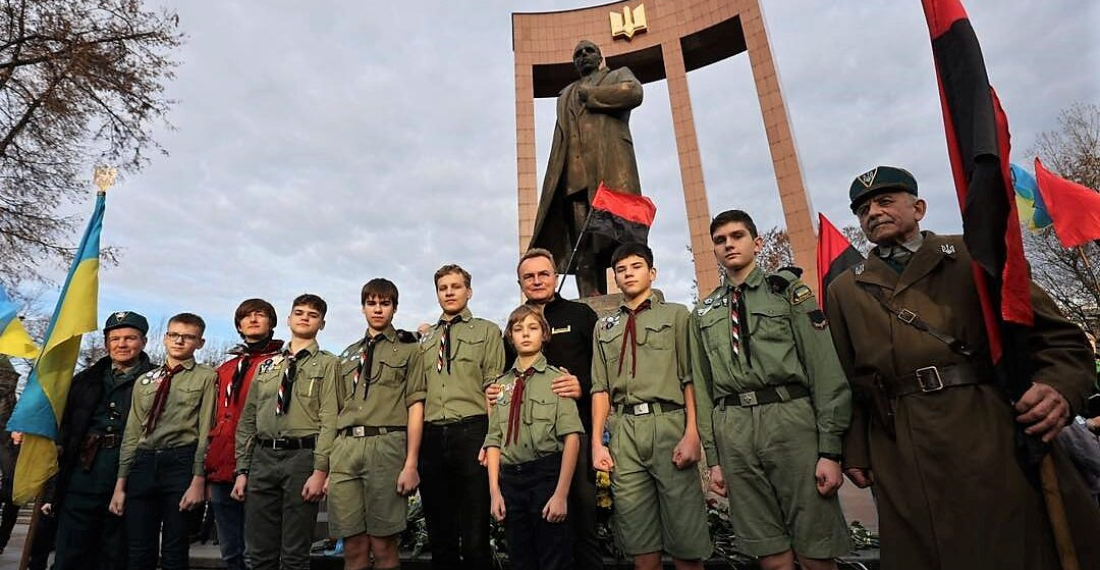Relations between Warsaw and Kyiv are heading towards a rift following to a proposal by the Polish president to amend legislation banning symbols in Poland used by Ukrainian nationalists during WWII prohibiting the display of Nazi and communist flags and signs. President Karol Nawrocki said his proposed amendment to the law would lead to the banning of “Banderite symbols” such as the red-and-black flag used by the Ukrainian Insurgent Army (UPA) and the Stepan Bandera wing of the Organization of Ukrainian Nationalists (OUN).
The UPA was responsible for the Volhynia Massacre, a series of mass killings of Poles between 1943 and 1945 in German-occupied Poland. As many as 100,000 Poles were killed in an area that is now in western Ukraine.
Widely regarded as war criminal in Poland, Bandera is considered by many in Ukraine to be a national hero who fought for an independent Ukraine. President Nawrocki claimed this week that he believes the amendment would make it harder for Russia to sow discord between Poland and Ukraine using historical disagreements.
He said: “In order to eliminate Russian propaganda and to place Polish-Ukrainian relations on a foundation of genuine partnership, mutual respect, and sensitivity, I believe that our draft legislation should include the clear message ‘Stop Banderism.’
“The Penal Code should treat Banderite symbols on the same level as those associated with German National Socialism—commonly known as Nazism—and Soviet Communism. At the same time, we should amend the Act on the Institute of National Remembrance – Commission for the Prosecution of Crimes against the Polish Nation, specifically with regard to the crimes committed by the OUN-UPA,” Nawrocki said.
The amendment could add further pressure to Warsaw-Kyiv relations, already soured by Nawrocki’s decision on Monday 25 August to veto a bill that would have extended support for Ukrainian refugee children living in Poland.
The veto was met with disapproval in Ukraine, prompting allegations that Nawrocki is hoping to make political capital by fueling public grievances against Ukrainians living in Poland.
An estimated 1.6 million Ukrainians moved to Poland after the war began. While they have been able to access Poland’s welfare system, they have also boosted, according to studies, the Polish economy.
Responding to the news of the amendment, the Ukrainian government notified Warsaw that should the proposal become law it would react, the European Pravda news website reported on Monday, citing a Ukrainian diplomatic source. “We are analyzing the legal dimension of the decisions made [in Warsaw] and their possible impact on the situation of Ukrainian citizens in Poland,” the source said.
At the same time, the source added that Kyiv is grateful to Warsaw for the support it has provided to Ukrainian citizens, and that it believes their rights will be protected to the same extent found in other European countries. But it added: “At the same time, any politicized decisions about allegedly equating Ukrainian symbols with Nazi and Communist ones may provoke an increase in negative sentiment in Ukrainian society and will require a response from Ukraine.”
Nawrocki, a historian by background, has repeatedly said that while Poland must support Ukraine in its struggle against Russian imperialism, it cannot be expected to come to terms with Ukraine’s veneration of an organization responsible for the deaths of thousands of Poles. He said that Warsaw’s support for Kyiv’s future NATO and EU integration should be contingent on Ukraine coming to terms with its dark past.






